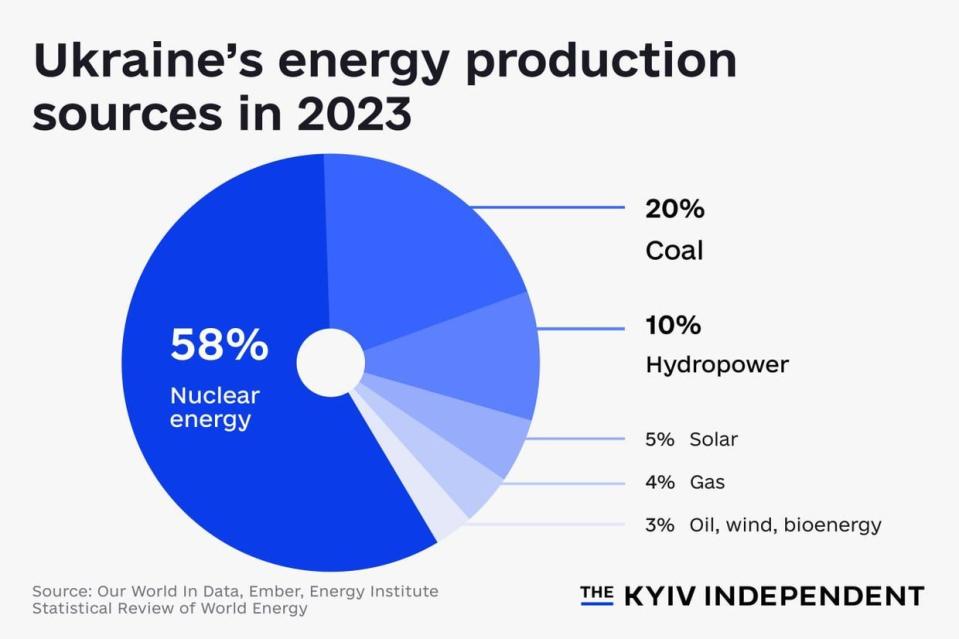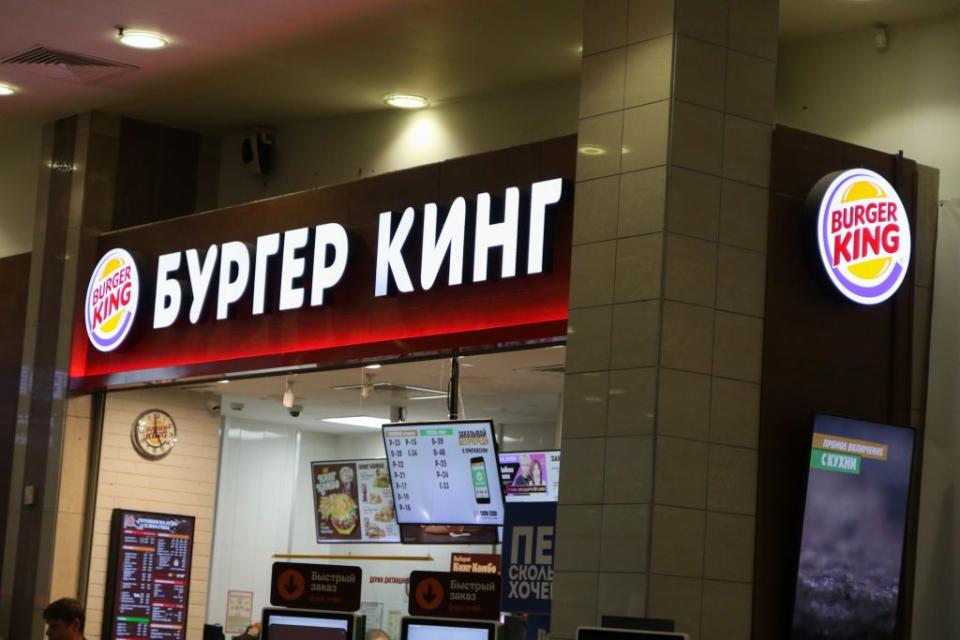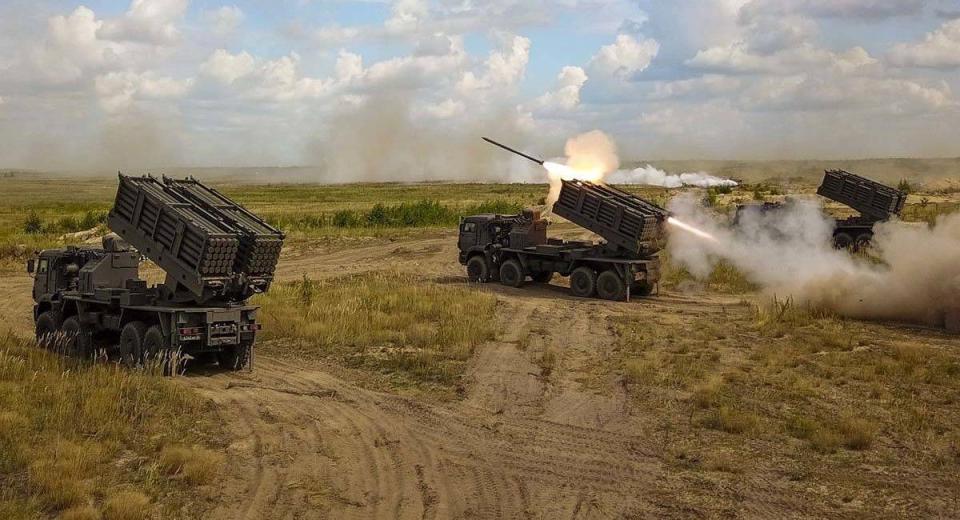The following is the fourth edition of our new Ukraine Business Roundup weekly newsletter. To get the biggest news in business and tech from Ukraine directly in your inbox, subscribe here.
IT Arena 2023
The war in Ukraine has been one of duality — trench warfare and artillery battles alongside revolutionary drone tactics; cities destroyed and occupied by Russia, and calm(er) ones where life has tried its best to carry forward; references to light and darkness, good and evil.
IT Arena, Ukraine’s largest annual tech event, breathed the same dualism, with events, presentations, and panels about topics such as generative AI (ChatGPT is an example) and the role of titanium in revolutionary robotics held in Lviv’s 123-year-old neo-Baroque opera house and just-as-old nearby museums and theaters.
It’s an uneasy feeling to talk about opportunities in tech and business during the war in the beautiful, relatively safe historic center of Ukraine’s western city of Lviv — thousands of kilometers from the front lines. Walking around the richly festive oil paintings and mirrored halls lit up by strobe lights with my single-origin coffee, I felt almost guilty, and a bit unsafe from realizing that the event could become a Russian target.
But as Chris Burry, investor and co-CEO at the Silicon Valley-based Market Access Center, put it at IT Arena last Friday, there is no denying that the war in Ukraine is a “black swan” event that has caused seismic, “stacking shifts” in the world that have opened up a whole set of opportunities for technological advancement.
Among Burry’s many pieces of advice for Ukraine’s tech entrepreneurs, one stuck out the most. If the country’s techies are used to looking to Western markets to sell their products, they should start thinking about the Global South — a part of the world that stands to gain the most from the technological developments that are occurring right now in Ukraine in areas such as reconstruction and rehabilitation.
No tech event in Ukraine would be complete without the country’s young and charming minister of digital transformation, Mykhailo Fedorov, who gave a crowd-pleasing presentation on the main ways Ukraine has used the war to transform tech on the battlefield.
As Fedorov was talking about transformative technologies that can save lives on the front lines, two small, unmanned ground vehicles came out onto the stage to a roaring applause. The minister thanked the robots for coming, adding that he was happy to see them.
It was hard not to get inspired by the buzz of the event, but a conversation with a young startup brought me back down to earth, reminding me just how much more work and money are needed to actually win the war.
Interview with the startup, called Frontline, about the unmanned demining vehicles they’re developing for Ukrainian soldiers, is coming soon on our website.
Demining Ukraine will require a tech revolution
Russia has made a minefield out of Ukraine. According to Human Rights Watch, approximately 30% of the country — an area twice the size of Austria — is covered with mines. This poses a serious problem not only for civilians who unwittingly detonate them, especially children while playing outside, but for the military, who needs to clear them in order to advance.
Rich Wordsworth recently wrote a story for the Kyiv Independent on the problem of demining Ukraine. Not only is the technology for laying mines more advanced today, but landmines don’t look like the classic, round landmine shape many of us still imagine them to be.
Russian forces have the ability, with the help of their “Zemledeliye” (a word eerily meaning “agriculture” in Russian) mobile mine-laying systems, to lay tens of thousands of mines across Ukrainian fields within minutes — exactly what they have been doing since the start of the full-scale invasion.
The technology to clear mines is in need of further development. There are bomb suits and machinery that are somewhere between a tank and a combine harvester, as well as drones, but in many cases, people and dogs are the ones out in the fields searching for and collecting mines.
As with all wars, unfortunately, the demining process can’t begin in earnest until the shooting stops. “What is the point of clearing somewhere, only to have to go back and re-clear that area again later?” Jon Cunliffe, of the Mines Advisory Group (MAG) told Wordsworth.

Is Ukraine’s energy system ready for future Russian attacks?
As winter approaches in Ukraine, the concern on everyone’s mind is whether Russia is planning another series of missile and drone attacks on Ukraine’s energy infrastructure this heating season.
I remember vividly when the attacks began last October. I was outside of Ukraine, working the news shift for the Kyiv Independent from my apartment in New York City when at around 3 o’clock in the morning my time, the messages from my colleagues in Kyiv and around Ukraine came pouring in: “Explosions near me,” “another explosion,” “another.” After a relatively calm summer, it was earth-shaking.
Thus began a winter of terror, stretching from October 2022 to April of this year — the exact time period of the country’s heating season — during which Russia damaged or destroyed half of the country’s energy system.
Our reporter Alexander Query recently wrote a story about whether Ukraine has been able to prepare its energy infrastructure and gather enough energy resources to make it through this winter no matter what Russia has in store.
According to experts, Ukraine is likely ready, but it will all depend on the intensity of Russian attacks and how cold winter gets. What I found particularly interesting about Query’s piece, however, was what Ukraine needs to do in the long term to not only make the energy network less vulnerable to outside forces but ultimately, more sustainable.
The key is decentralization. Experts told Query that Ukraine needs smaller backup power sources scattered around the country instead of keeping a post-Soviet central system that is easy to target. The full-scale invasion has opened an “opportunity” to speed up the energy transition, by thinking of how to rethink the entire energy structure.

Corruption crackdown
As the U.S. Congress stages a series of thrilling cliffhangers — will the government shut down, and will Ukraine aid be embedded in the bill that’d keep it running — the White House is signaling that it’s going to be stricter with preconditions.
Several leaked and public documents suggest that Washington will soon insist Ukraine gets its act together on corruption if it wants to keep the spigot flowing.
The first page of the State Department’s public integrated country strategy highlights Ukraine’s unique opportunity to tackle corruption and reforms. But the leaked version reported by Politico is a sight more pointed, saying perceptions of corruption at the top could undermine foreign faith in the wartime government.
The document obtained by the media outlet outlines steps the U.S. is taking to help Ukraine tackle corruption and reform the country’s military, financial, and education sectors, among others.
Meanwhile, a working draft of mandatory reforms was sent to the Ukrainian government, with deadlines of three, six, 12, and 18 months. Some of these are about Ukraine’s crawling judicial reforms for the Specialized Anti-Corruption Prosecutor’s Office, the National Anti-Corruption Bureau of Ukraine, the National Agency on Corruption Prevention, the High Council of Justice, and the rest of its hilariously unreliable judiciary.
Other reforms concern changes at top state companies — another independent member for Ukrenergo and Naftogaz supervisory boards, finishing corporatizing Energoatom, cutting the umbilical between the Main Gas Pipelines of Ukraine and Gas Transmission System Operator of Ukraine for good, choosing a supervisory board for the Ukrainian Defense Industry and adopting Organization for Economic Co-operation and Development guidelines.
It’s good for Joe to dig the spurs into Ukraine’s reform effort. Corruption burdens many of its institutions; the ones that came out during the war were public embarrassments. If Kyiv wants anyone to invest in defense and reconstruction, it has to make them reasonably sure the funds won’t disappear into somebody’s pockets.
Still, there is a concerted effort by fans of Russia, to block aid by portraying Ukraine as fundamentally corrupt from top to bottom, which it’s not. American scrutiny will contain voices looking for any exploitable opportunity to do so. We should be careful not to oversimplify. The opportunity is there but reforms are hard when you’re fighting a trench war for survival.
Reporting by Igor Kossov, reporter at the Kyiv Independent.

Broken promises
Remember all those companies that promised to leave Russia after it launched its full-scale invasion of Ukraine? Well, some major international companies have continued on with business as usual.
While fast-food giant McDonald’s has left, selling off its restaurants to a Russian buyer who did a quick rebrand and renamed the restaurants, “Tasty, period,” rival Burger King is still operating 800 restaurants in Russia.
Restaurant Brand International, which owns 15% of Burger King’s business in Russia, told the BBC it has “no new updates” on its plans to leave, following its pledge to exit in March 2022.
Forbes Russia released the revenue of the Russian divisions of the top 50 international companies featuring numerous household names including Nestle, Hyundai, PepsiCo, and AstraZeneca Pharmaceuticals.
U.S. companies dominated the list, with eight of the 10 businesses from last year’s ranking featuring again this year. Tobacco giant FMSM/Philip Morris was the most successful U.S. company, with revenue amounting to 399.9 billion rubles ($4 billion) last year, a 1.8% increase compared to 2021.
French and German companies were also highly represented, with five companies each featured on the list. France’s Leroy Merlin saw the largest revenue of any international company with 529.7 billion rubles ($5.3 billion), a 16% increase compared to 2021. However, the company is currently waiting for approval from the Kremlin to hand over its stores to local management.
Nevertheless, many international businesses saw decreased revenue, particularly from countries allied with Ukraine. Dutch real estate company Ingka Holding felt the greatest loss with -60.2%, although it still saw a healthy revenue stream of 119.1 billion rubles ($1.2 billion).
The increasing pressure to leave the Russian market clearly has had some impact as 22 companies dropped off the list, with no representatives from Sweden, Spain, and Latvia featured in the ranking.
The Moral Ratings Agency published a list of shame in June last year spotlighting companies that failed to deliver on promises to exit Russia. According to the report, the majority of the 114 analyzed companies fell into a gray zone, wherein they partially reduced operations but hadn’t left entirely.
Reporting by Dominic Culverwell, business reporter at the Kyiv Independent.
What else is happening
Ukraine grain exports fall 25.8% so far in 2023/24. Ukrainian grain exports have fallen to 6.68 million metric tons so far in the 2023/24 July-June season from 8.99 million tons in the same period of 2022/23, according to agriculture ministry data published on Oct. 2. Only 7,000 tons of grain were exported on Oct. 1, 2023 compared with 297,000 tons last year. Dominic Culverwell contributed reporting.
Five grain ships heading to Ukraine’s Black Sea ports for loading. Ukraine’s Infrastructure Minister Oleksandr Kubrakov also said that three other ships had recently left with cargo through Ukraine’s temporary corridor in the Black Sea. The five vessels — Olga, Ida, Danny Boy, Forza Doria, and New Legacy — will be loaded with 120,000 tons of grain for Africa and Europe at the Odesa ports of Chornomorsk and Pivdennyi, Kubrakov said on Facebook.
Denmark to open diplomatic mission in Mykolaiv to help restore city. Denmark’s foreign minister also said that Copenhagen wants to open a new diplomatic office in Mykolaiv. “At the request of President (Volodymyr) Zelensky, we are taking separate responsibility for the restoration of Mykolaiv and the entire oblast,” Danish Foreign Minister Lars Lokke Rasmussen said in Kyiv ahead of a meeting of the EU foreign ministers.
Ukraine’s Central Bank ditches fixed exchange rate for first time since war. Ukraine’s central bank said it was bringing a more flexible rate starting on Oct. 3, removing the official peg it has had throughout the war with Russia. The move is aimed at boosting the economy and businesses. Central Bank Governor Andriy Pyshnyi said financial stability in Ukraine had climbed to a “historic maximum,” Reuters reported.
High Anti-Corruption Court provides first monetary award to whistleblower. Ukraine’s High Anti-Corruption Court (HACC) announced on Oct. 2 that it had ruled to pay Hr 13.3 million (about $360,000) to a whistleblower in the case of a $6 million bribe attempted by a former first deputy head of the Kyiv tax service back in 2020. The case against the former deputy, Mykola Iliashenko, is the first example of a corruption-related whistleblower receiving a monetary award for their role in prosecuting a crime.
Subscribe to the Newsletter
Ukraine Business Roundup
We’ve been working hard to bring you independent, locally-sourced news from Ukraine. Consider supporting the Kyiv Independent.


